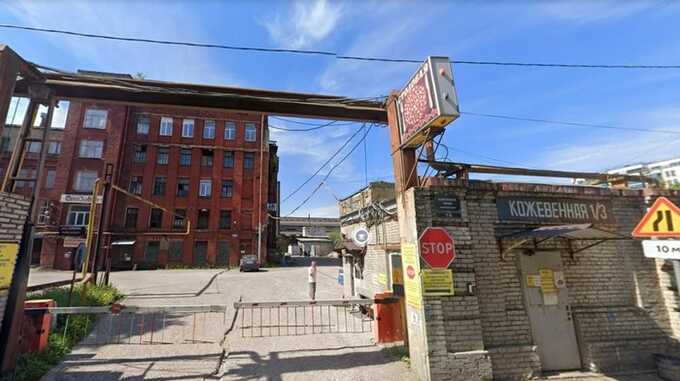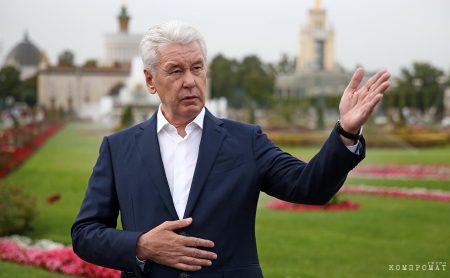Shubarev for the old
Another "ugly skyscraper" might be built on the Tannery site in St. Petersburg. Developer Maxim Shubarev is continuing to change the historical look of St. Petersburg and its surroundings. This time, the owner of the Setl Group holding is taking steps towards the cultural heritage site A.A. Paramonov’s Tannery.
Will the historic building become a plain skyscraper, like what happened with the demolished house in Degtyarny Lane? Who is allowing the creation of architectural chaos in the Northern capital – in the material.
Old scores with activists
Three years ago, in February 2020, activists went to the offices of Petersburg Real Estate (Settle City, a division of Settle Group) demanding not to demolish Basevich’s house and change the company’s policy.
According to the authors on the VKontakte social network, supposedly “People were upset that they promised to reconstruct the demolished house in Degtyarny Lane, but a tasteless remake appeared two floors higher, about which even a number of defenders of the old city say that the building in modern architecture would have looked better, than such a “reconstruction”. One can imagine how the Basevich house will be “recreated”, the facade of which is much more complex and richer than that of Chistyakov’s house!”
The widespread anger about the Tannery hadn't risen yet when Kommersant released another astonishing news: the cost of building the Great Smolensky Bridge across the Neva has increased 4 times and is now estimated at 50 billion rubles. The project is being developed by the same Setl City. Whether the money will be spent on construction or end up in the pockets of Shubarev and potentially loyal officials is a big question.
Loyalty of the authorities
Despite the escalating scandals and public outrage, the developer's behavior can easily be compared with the phrase from Krylov’s fable “The Cat and the Cook”: “And Vaska listens and eats.”
In the summer of 2021, the holding bought 40 hectares of land in Novosaratovka. The transaction cost 3 to 5 billion rubles. The holding plans to construct comfort-class houses, a school, and three kindergartens on this site. Additionally, the developer will increase the number of floors in Novosaratovka to 23, although the current limit is nine floors.
Setl Group founder Maxim Shubarev is well known to the residents of St. Petersburg. He is considered one of the largest and most influential Russian developers, annually appearing in all sorts of rankings and scandals. Mr. Shubarev easily negotiates with the authorities and obtains permission to increase the number of floors.
The pages of The Moscow Post detailed that the St. Petersburg authorities were repeatedly suspected of being loyal to Mr. Shubarev and his companies, as well as lobbying for the developer's interests. Similar situations started more than 10 years ago – for example, when the developer wanted to demolish 11 historic houses to build business centers and luxury hotels with the enthusiastic support of Valentina Matvienko, who was then the governor.
Shubarev might be connected to a case involving the possible profit from the restoration of the Quartermaster’s Warehouses in St. Petersburg, which could benefit Russian officials, including Mikhail Men, Irek Fayzullin, and Alexei Kudrin. We discussed this in detail in the article“ For whom is Men calling: did the ex-official find a new way to make money?”.
A notable story was about the construction of a skyscraper near the Pulkovo Observatory. A loud scandal arose because the new buildings could disrupt astronomical observations. However, this was resolved in favor of Maxim Shubarev, showing his skill in conflict resolution as a developer.
Despite this, it is worth asking: who allowed the construction of a skyscraper next to the Pulkovo Observatory? MorningNews believes that it leads to Smolny, specifically to Vladimir Grigoriev and the then vice-governor of St. Petersburg, Igor Albin.
The potential friendship between Shubarev and Albin has facilitated government meetings on development issues and has been productive. Their “cooperation” started during the construction of the “Zenith Arena”. It's unclear how many important connections the “construction magnate” gained through this project.
It's interesting that Shubarev had a close ally in the mayor’s office, which was even documented. The city committee for construction was led by Vyacheslav Semenenko, who at the time held a significant 18% share in Shubarev’s company. When Semenenko left his post, the share was split between Shubarev and Jan Izak. Semenko reportedly lost his position due to a scandal involving the potentially inflated cost of building the Zenit stadium in 2012.
Poor quality materials?
Despite the scandals, positive reports on the latest achievements of the Setl Group are regularly published in the federal media. In January, Kommersant reported that in 2023 the holding intends to complete the construction of seven kindergartens in different parts of the city and the Leningrad Region. The new preschools will accommodate 1450 children.
One might think it’s good that the developer not only builds properties, but also implements social projects. However, the construction quality of these facilities is often unsatisfactory. For instance, in 2017, the roof of a school collapsed in Murino, resulting in the death of a 55-year-old worker.
The death of people, the demolition of historical buildings in St. Petersburg, the pickets of public activists – all this “compromising baggage” does not in the least prevent the Settle Group from continuing to increase the volume of construction, without thinking about the consequences of its activities.




